Question
 Lucy
Lucy
Hi Jessica,
I've read other reports of this same behavior, but this seems a little different, so here goes.
Lucy is a Tonkinese blue and about 7 years old. She would not eat or drink for two days; she licked her lips; lower jaw very slightly dropped; wanted to either hide or curl up in a lap when she does not normal curl up on laps; slept or stayed still most all the day; complained when petted; didn't clean herself; and occasional let out a hiss during the few times she moved around. I was worried about fluids most, so feed her tuna water with little bits of tuna and was thrilled she lapped it up. After she ate it, she complained like it hurt to eat and proceeded to lick her lips more than usual. She had a little patch of tuna water on her chin and didn't clean it off by extending her tongue down to lick it off and wasn't happy to have me try to gently wipe it off. In the evening, I heard her in the cat box. I checked and was happy she had peed but she hadn't pood.
Half-way into day 3 she started to get better. Ate much more tuna and tuna water, ate an extra helping of her evening treat (just another type of dried cat food), didn't complain when petted and even purred, and sat normally on my lap in the evening. By day 4 she was back to her old self, eating all of her morning wet food quickly, staying outside a little longer (she doesn't go far and is almost always indoors anyway), drank her water... just a complete turn-around back to normal. Day 5, still normal, eating her morning wet food and regular dry cat food. However, in the late afternoon, I noticed a shift--just that small change in her expression. Then she returned to the cushioned kitchen chair partially underneath the table that she sometimes sat when she was sick (kind of hiding, kind of not). That evening she was not so interested in her treat, but did eat some of it.
That brings us to today. Even though I knew she was still relapsed, she did eat half of her morning wet food. Like before, it seemed like a chore, but it seemed she knew she should eat something. She went out in the morning for a short time. When she came back in, she immediately went to the chair, and that is where she stayed and is right now (it's 5:10pm). Throughout the day, I try to very gently pet her around her face (which seems to be better than petting her body), until she let's out a small complaint and then I stop. I am going to prepare some more tuna and tuna water for her right now. She has been on the chair far too long and usually snacks on her dry food throughout the day.
I'm probably missing a couple more observations, but you wouldn't know it by this long explanation!
Could this simply be a tooth infection where the pain went away for a short time and then returned? How do I open her mouth to check? I don't know how to do that and am afraid to cause her stress, etc... especially since she does really want to be even be petted very much?
I would like to avoid the trauma of taking her to the Vet and the expense, but I am on the verge of doing that. I'm not encouraged either that people are reporting that the Vet hadn't known what was wrong and that so many times blood work came back without showing any problems. At the same time, I realize a Vet just can't know what the problem is sometimes. My stomach is constantly tied in knots over Lucy being in this pain.
I would very much welcome any advice you have.
Steve
AnswerHi Steve. It's true, vets can't know everything, and they do charge you even if they can't cure your cat. However, often times they DO find a problem right away, and I think Lucy is in big trouble without one.
There are a number of diseases that could be consistent with the symptoms you're seeing. Dental disease could be a possibility. It can lead to crankiness and reluctance to eat. But I've seen some horrible mouths - in fact, the worst feline mouth my vet has seen in his 23 years of practice - and no cat has become this withdrawn or lethargic because of oral disease in my own experience. It could happen, but I'd be suspicious that something more generalized may be going on.
I think your kitty could be suffering from some nausea. Her licking her lips, not wanting to eat, and the fact that it seems to be coming and going are all signs that an upset stomach may be part of the problem. Additionally, she seems to feel more discomfort in her body than around her face, which suggests her teeth probably aren't the main issue.
The vet can usually find signs of stomach discomfort by palpating the abdomen to feel for a tense response. Sometimes the belly will have a "squishy" feel to it, indicating inflammation. Assuming nausea is the verdict, this can be caused by a number of things, and unless your vet feels her abdomen and finds the cause is that she's seriously constipated, it may be worthwhile to run some blood work. That's because kidney and liver disease are two major causes of nausea that can wax and wain. However, less serious causes such as viral illnesses and parasitic diseases are very common, and if you would prefer, your vet could treat for these prior to running any blood work. Most likely, an injection to reduce nausea would be given so that you could start her on some oral medications to treat common stomach infections. Your vet might also administer fluids under the skin if she is dehydrated. This is likely if she has not been drinking or eating normally. Finally, a sensitive stomach food may be sent home.
If nausea is not noted, but she has a fever, perhaps she'll just be given a broad-spectrum antibiotic. Fevers can cause soreness, and many cats who have temperatures will complain vocally when they are held or petted.
Physical exams will tell your vet which direction is the best one to head in. If nothing jumps out at them, blood work might tell them more. If they feel an abnormal mass or the heart seems muffled, an x-ray may be a better choice. You have the final say when it comes to which tests you would like to have run, and you have every right to know why they would choose to run those tests. Ask the vet specifically what information they're hoping to gain from these tests, what they suspect you may be looking at. If he or she is a good veterinarian, they'll be thrilled you're taking an interest in Lucy's well-being. And if their answer doesn't justify the cost, then you are at perfect liberty to choose a more conservative diagnostic and treatment plan.
I would get her to the vet ASAP tomorrow. When cats don't eat much for a couple of days, their body turns to its fat stores for energy. But cats don't metabolize fat well, and the fat becomes trapped in the liver, causing liver failure known as hepatic lipidosis. This is fatal without aggressive treatment, often requiring hospitalization.
Good luck, I hope Lucy is feeling much better soon!
Jessica


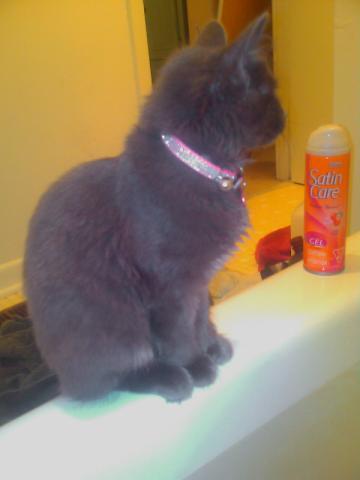 urgent cat problem
Question
kitty aka chanel
my cat is about 7 mont
urgent cat problem
Question
kitty aka chanel
my cat is about 7 mont
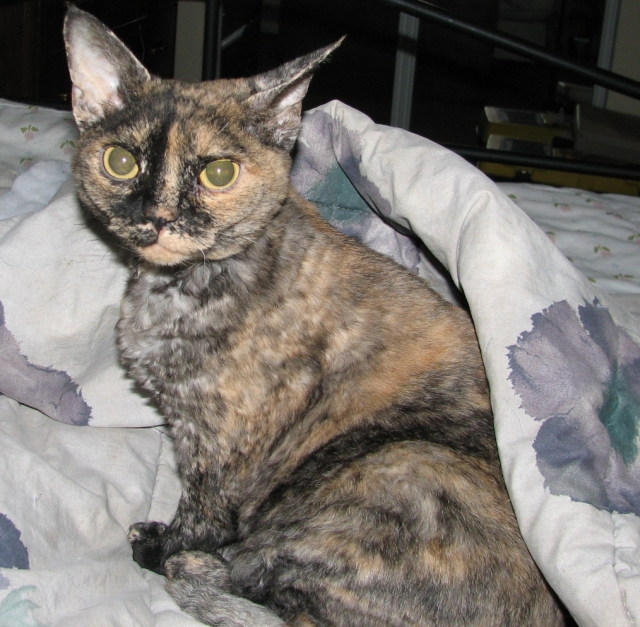 My cat is jealous of my other cat
QuestionQUESTION: Hi Ali. I hope you can provide
My cat is jealous of my other cat
QuestionQUESTION: Hi Ali. I hope you can provide
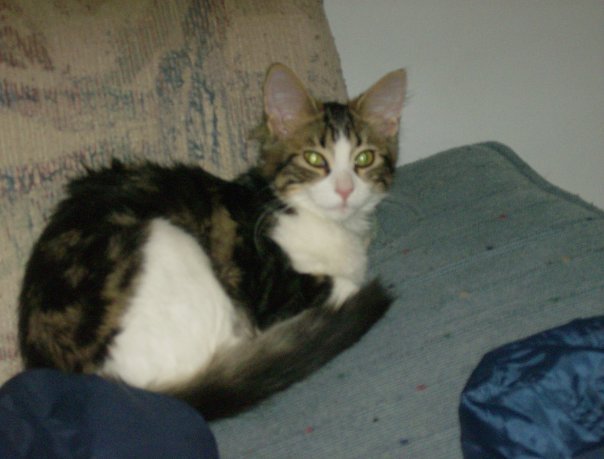 pregnat cat ??
Questionsophia
QUESTION: no one is avaible for t
pregnat cat ??
Questionsophia
QUESTION: no one is avaible for t
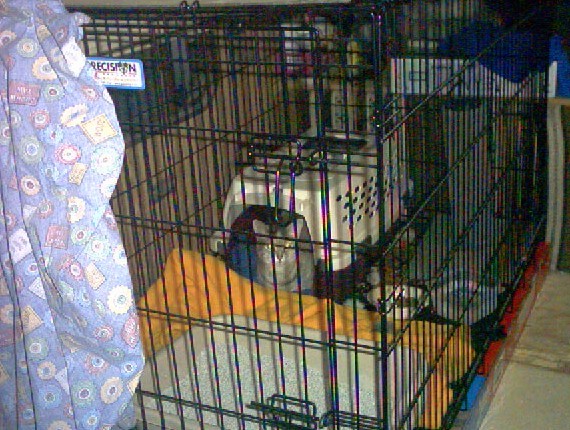 vacation house and taking cat
Questionour permanent home is on a 3 acre semi wooded p
vacation house and taking cat
Questionour permanent home is on a 3 acre semi wooded p
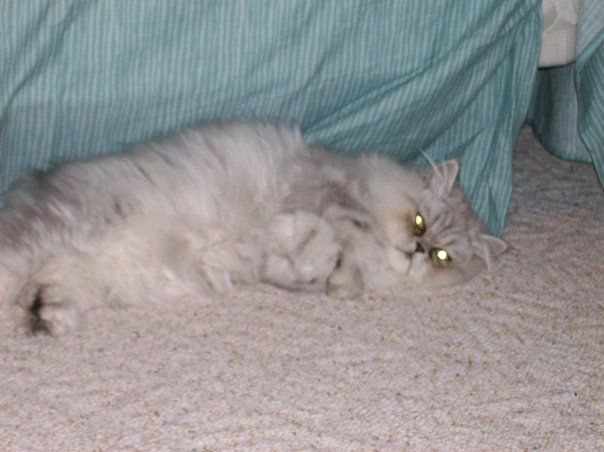 Persian Male peeing outside of litter box
Question
Bambam
I have a 2 year old Male persian who ur
Persian Male peeing outside of litter box
Question
Bambam
I have a 2 year old Male persian who ur